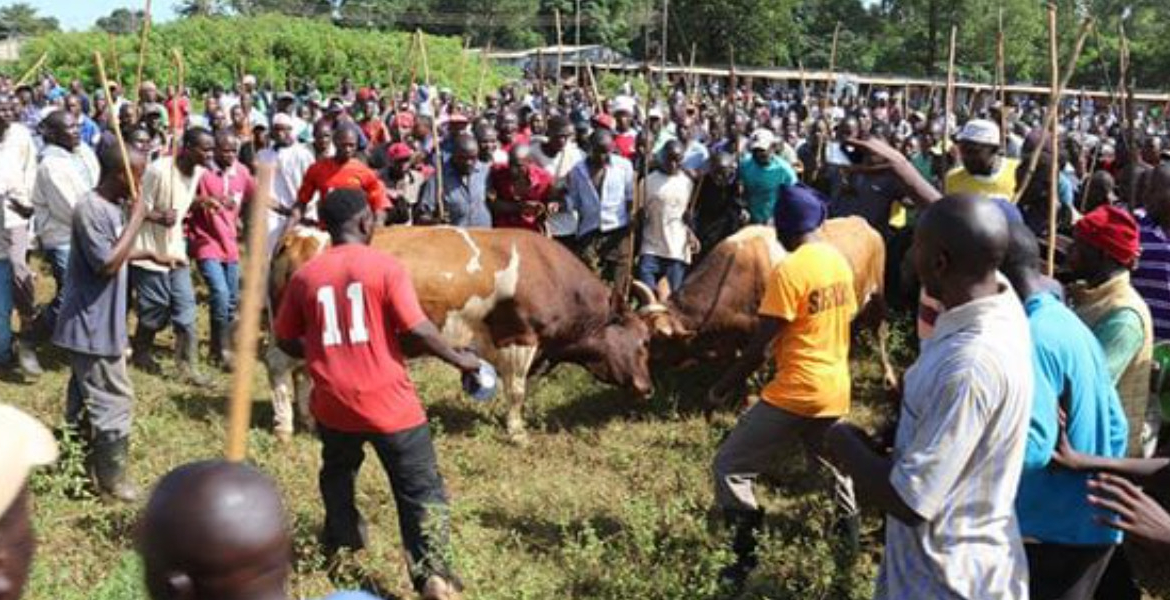Bullfighting in Western Kenya: A Tradition Handed Down from Father to Son

Bullfighting in Western Kenya is experiencing a revival, blending long-standing cultural traditions with contemporary social and political themes.
More than just a sport, these events, especially among the Isukha community, are powerful expressions of identity and cultural heritage, prompting reflection on how to preserve tradition while addressing modern ethical concerns. The rhythmic beat of Isukuti drums fills the open fields as communities gather to watch these historic contests. Many bulls carry names inspired by current events, such as ‘Finance Bill’, linking the tradition to wider national discussions.
One key figure in this revival is Dickson Konzolo, known as ‘Njambi’, who has been involved since primary school, demonstrating the generational connection to the practice. His bull’s name was chosen after the President rejected the Finance Bill 2024.
For many participants, bullfighting, or musambwa, is more than a pastime; it is a spiritual tradition handed down through generations. Njambi describes the practice as “in [his] blood,” with both his grandfathers having taken part and his son preparing to continue the legacy.
Bullfighting matches follow an informal but respected protocol, including formal invitations, prize money, and communal feasting. The events are lively and festive, but competition is intense, involving gambling, personal honour, and community standing. Each match is preceded by a parade featuring an Isukuti band, enhancing the cultural experience.
Despite the deep cultural roots, concerns about animal welfare are increasingly raised. Bulls can suffer long-term injuries if overworked. Nonetheless, supporters like Njambi stress the importance of the sport for cultural preservation. He also prioritises the health of his bull, ensuring rest and administering muscle-repair treatments after fights. Njambi emphasises that handling the animals calmly and respectfully is vital to their care.
Spectators play an important role in protecting the bulls, ensuring they are safe during and after contests. Beyond its cultural significance, bullfighting also provides economic benefits. Winning bulls increase in value, and Njambi notes that his bull ‘Finance Bill’ has doubled in worth since he acquired it.








Add new comment